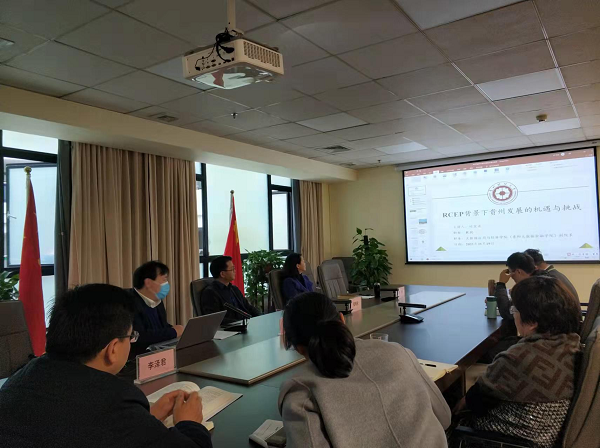Guiyang Foreign Affairs Office holds lecture on RCEP opportunities

Guiyang Foreign Affairs holds a lecture on opportunities and challenges brought about by the RCEP. [Photo/guiyang.gov.cn]
The Guiyang Foreign Affairs Office in Guiyang, capital of Southwest China's Guizhou province, held a lecture on the opportunities and challenges brought about by the Regional Comprehensive Economic Partnership (RCEP) for Guizhou and Guiyang on Nov 19.
Shi Hongyuan, who holds a doctorate from the Chinese Academy of Social Sciences and a post-doctorate from Fudan University and is a professor and deputy dean of big data application and economics at Guizhou University of Finance and Economics, was invited to speak at the lecture.
Shi gave an overall introduction of the RCEP, as well as Guizhou's related opportunities and challenges.
The RCEP was signed by ASEAN countries, China, Japan, South Korea, Australia and New Zealand in 2020, and will take effect in January next year. It designates the world's most populous free trade zone with the largest trade scale and most development potential.
When the RCEP takes effect, it will allow more Guizhou products to be exported, strengthen Guizhou's position in the China-ASEAN Free Trade Area, and boost regional trade liberalization.
To grasp the opportunities brought about by the RCEP, Guizhou should build more traffic infrastructure to make freight transportation more convenient, improve the popularity of its products, and optimize its business environment.
Zhang Mingquan, director of the Guiyang Foreign Affairs Office, said that all officials must apply what they learned at the lecture in their daily work and improve work related to foreign affairs to contribute to Guiyang's development.
Presented by China Daily.
黔ICP备05001922号-3